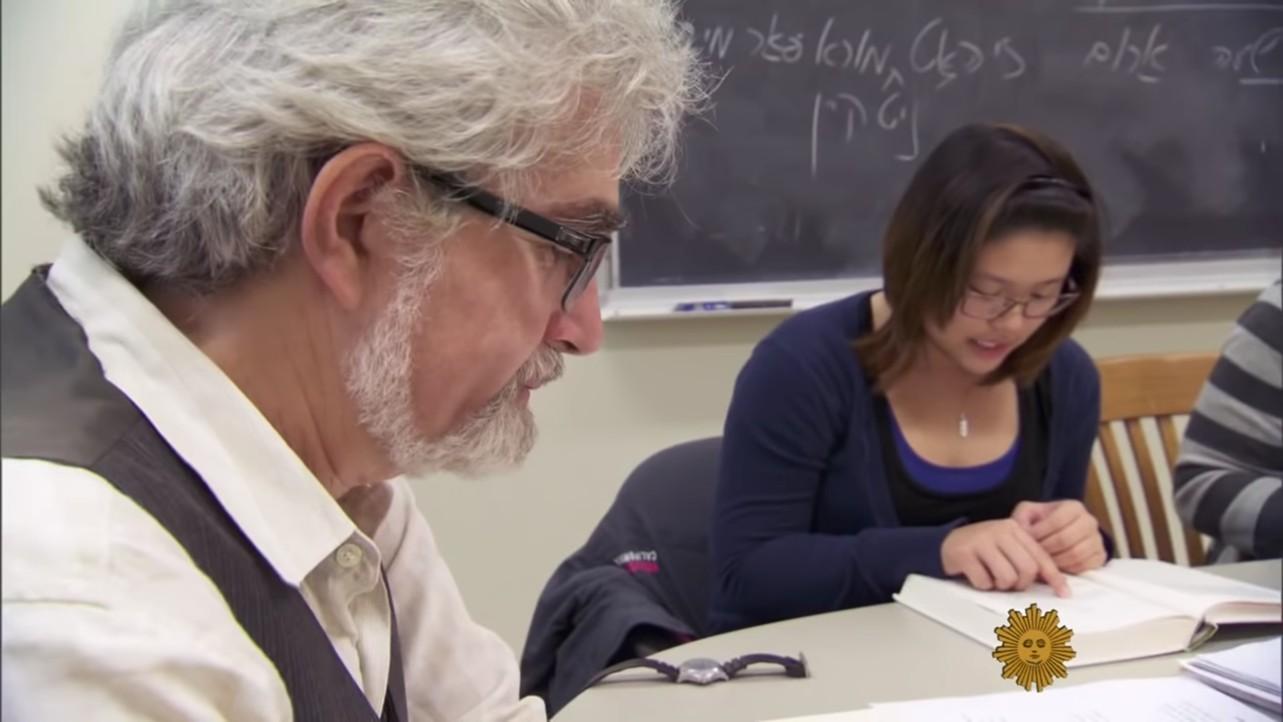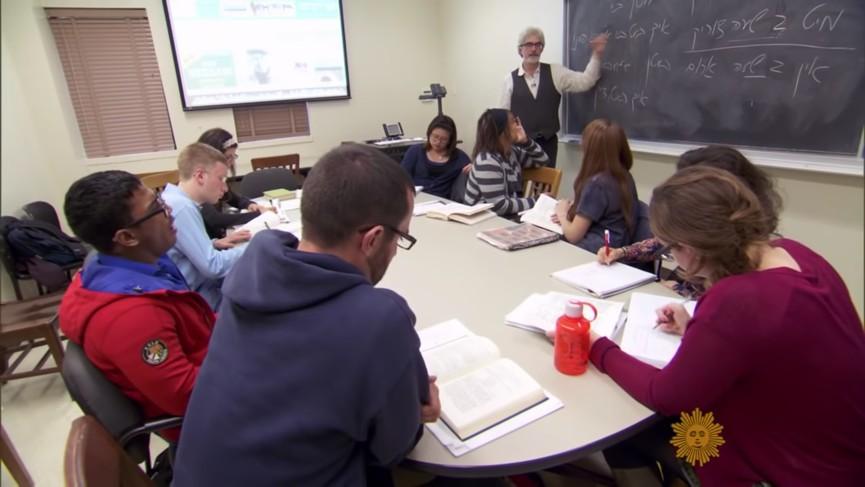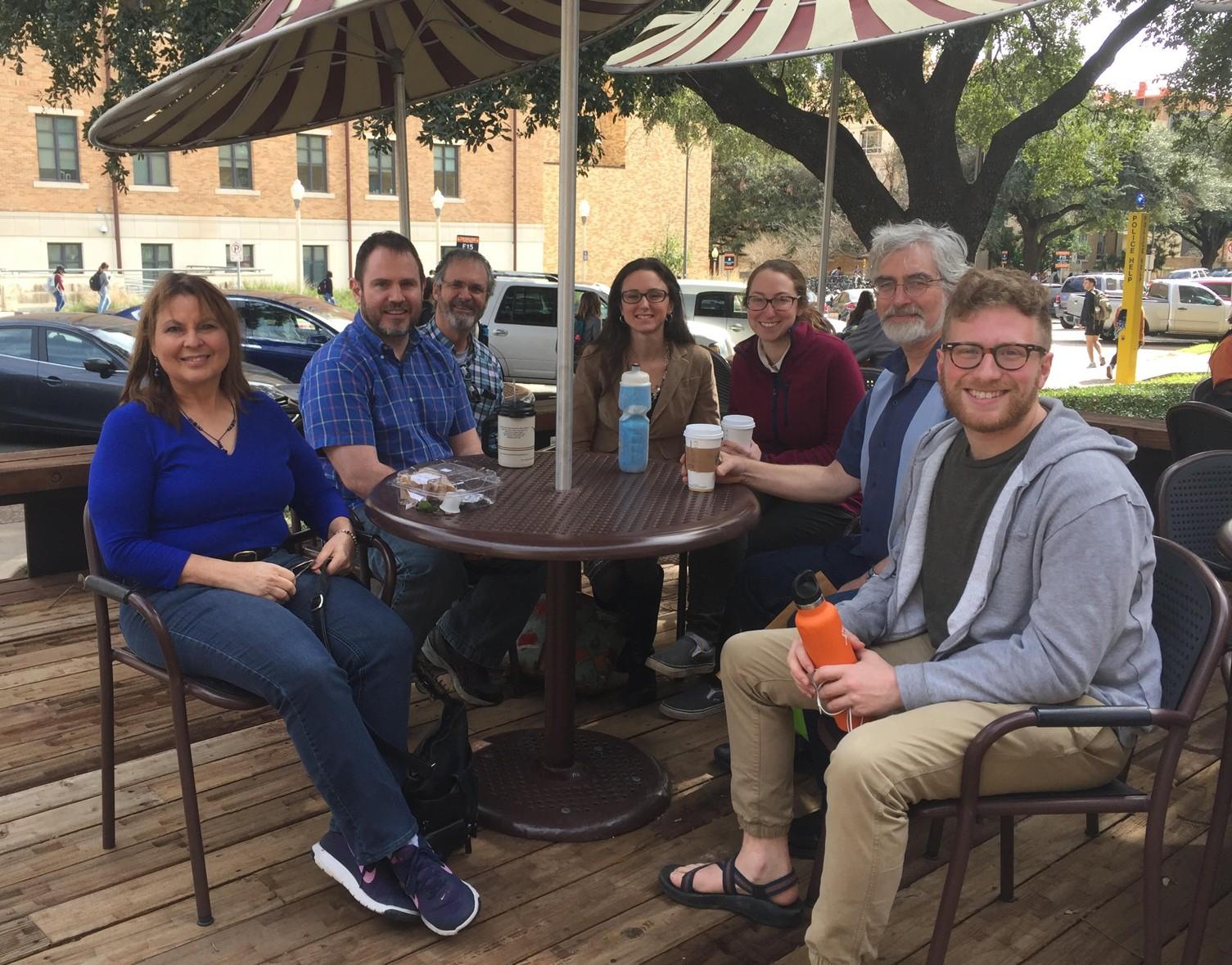

YIDDISH LANGUAGE AND CULTURE + THE UNIVERSITY OF TEXAS AT AUSTIN




The Yiddish Language and Culture program has been part of the Department of Germanic Studies at UT since the late 1970s. Since that time, it has gained international recognition, graduating undergraduate and graduate students who have gone on to be significant Yiddish academic and cultural figures. It is the only Yiddish language program in the American Southwest and thus a regional center in a larger peer network of North America’s most prestigious universities—Harvard, University of Michigan, UC Berkeley, UCLA, Emory, University of Chicago, and University of Toronto, among others—maintaining a strong Yiddish program.
The presence of strong Yiddish programs at UT Austin and at our very best peer institutions reflect a shared recognition that Yiddish is a key that unlocks doors that at times obscure cultural interconnections and hamper intra- and inter-institutional collaborations.
Today, the strength of Yiddish in the Americas reflects the broader migration and cultural histories of the continent, allowing one to trace historical as well as contemporary experiences of socio-cultural transformations. Within a large research and teaching institution such as UT Austin, the Yiddish Language and Culture Program connects scholars from across academic units and disciplines, archivists and curators working with our Yiddish collections (which includes I.B. Singer’s papers) at the Harry Ransom Center (HRC), as well as students pursuing a range of academic, artistic, and professional goals. The program also serves as a platform for the larger UT campus to cooperate with scholars, research centers, and institutions around the world. The Yiddish Language and Culture Program connects UT Austin with a broader national and international network of scholarship and cultural production, such as the New York-based YIVO and Polin: Museum for the History of Polish Jews, one of the most prestigious European museum projects of the last twenty years, located in Warsaw.
The Yiddish Language and Culture program at UT serves as a hub where students with very diverse backgrounds learn together and share their experiences and networks. Every year, Yiddish language courses attract undergraduate students looking to complete their foreign language requirement and who are curious about one of the key pillars of global Jewish culture. Graduate students from a variety of disciplines as well as researchers, performers and artists, authors, and other academics also participate in the Yiddish and Culture program.
ADVANCING EXCELLENCE AND SECURING THE FUTURE
According to the most recent census, the number of Yiddish speakers in the US is increasing and will dramatically continue to do so over the next 50 years.
With an estimated three to four thousand Jewish undergraduate students at UT Austin, the Yiddish program has given our students the opportunity to research their background and history and to speak with relatives around the world.







In 2015, Dr. Itzik Gottesman's undergraduate Yiddish class was featured on a nationally televised segment on "CBS Sunday Morning," which was entitled "Yiddish Is Alive Deep In The Heart of Texas " Yiddish has been part of the Center for Russian, East European, and Eurasian Studies (CREEES) through which graduate students have received Foreign Language and Area Studies (FLAS) awards to continue their Yiddish studies.
The Schusterman Center for Jewish Studies hosted an international conference in March 2022 on the work of Noble prize-winning Yiddish author Isaac Bashevis Singer in conjunction with the opening of a new exhibition of his papers at the HRC. This conference highlighted the unique place that UT’s collection has in the world of Yiddish Studies and how it attracts scholars from all over the world.
OPPORTUNITIES FOR
PHILANTHROPIC
SUPPORT AND IMPACT
The goal for our campaign is to honor the significance of the Yiddish Language and Culture Program at UT Austin and secure its future by creating an endowed lectureship in Yiddish. A solid financial basis will allow UT Austin to recruit and retain the very best scholars in the field, strengthen UT Austin’s reputation as a center for excellence in research and teaching of Yiddish language, and secure the place of Yiddish as a cultural and scholarly juncture for the Southwest and beyond.
To this end we have begun an effort to establish an endowment for a permanent position for a Yiddish lecturer here at UT, with an overall goal of $2 million, providing roughly $100,000 in perpetual funding annually.
In the interim, we are also hoping to secure $40,000 each year to ensure our Yiddish Language and Culture program remains alive and thriving as we build toward our endowment goal.
The cover of the first Yiddish translation of J.K. Rowling’s Harry Potter and the Sorcerer’s Stone/Philosopher’s Stone.There is a quiet humor in Yiddish and a gratitude for every day of life, every crumb of success, each encounter of love…
THANK YOU FOR YOUR CONSIDERATION
We be honored to have your name permanently and prominently associated with this important effort to solidify our Yiddish Language and Culture program in perpetuity. We appreciate your consideration to invest in this important work and hope this aligns with your philanthropic goals. Your support will help unlock the potential of our students and capitalize on the outstanding faculty who create a foundation of knowledge and expertise for them.




Should you like to learn more about this effort or participate by making a gift, you can do so at www.giving.utexas.edu or by contacting Dr. Hans Boas or Dr. Jonathan Kaplan, whose phone and email information follows. You may also reach out to Stacy Clark, Executive Director of Development at 512-232-5606 or sclark@austin.utexas.edu.
Thank you for your thoughtful consideration.
Hans C. Boas, Ph.D. Raymond Dickson, Alton C. Allen, and Dillon Anderson Centennial Professor Chair, Department of Germanic Studies 512.471.4123 hcb@austin.utexas.edu
Jonathan Kaplan, Ph.D. Associate Professor of Middle Eastern Studies Director, Schusterman Center for Jewish Studies 512.471.9453 jonathan.kaplan@austin.utexas.edu liberalarts.utexas.edu

